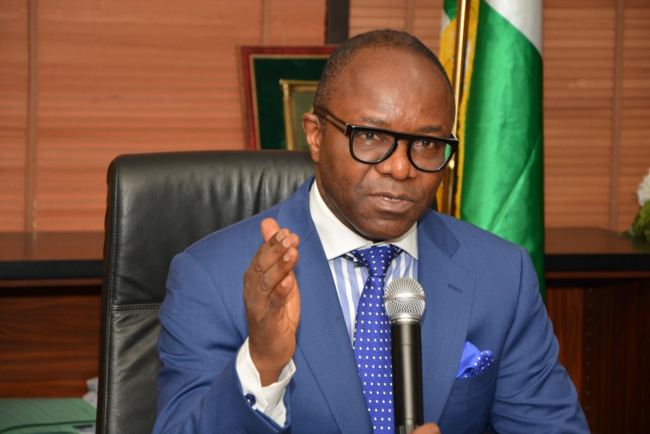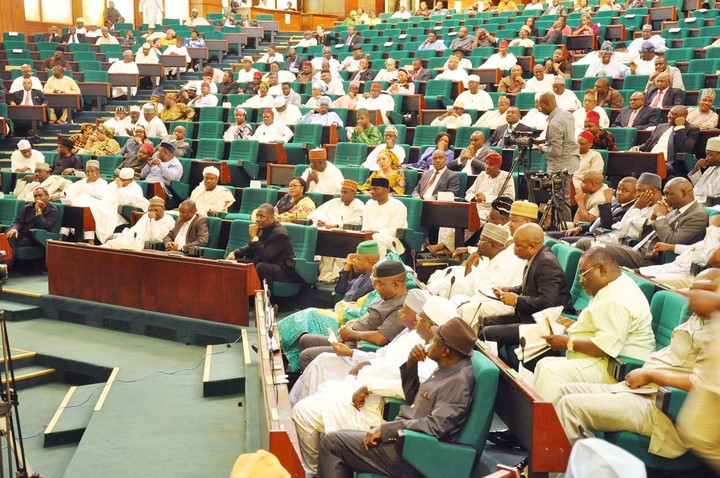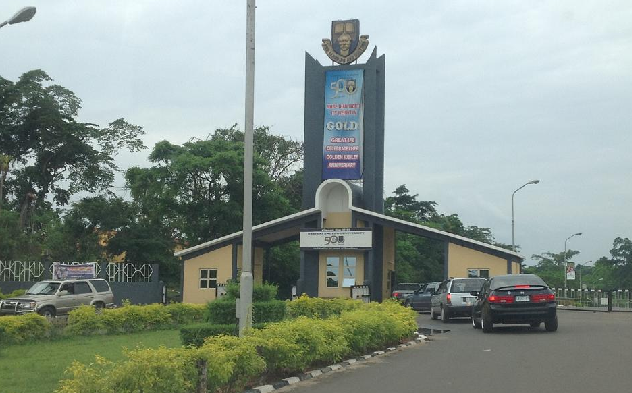The federal government is proposing a new regime for the funding of its joint venture partnerships in the upstream sector, Ibe Kachikwu, minister of state for petroleum resources, said on Thursday.
Under the new proposal, the government will no longer fund its 60% contribution in the JV projects, potentially paving the way for an inflow of $15 billion fresh investments to the sector.
Nigeria’s contribution will, from 2017, be funded by banks under an arrangement that will allow them to recover their monies while federal government will only collect dividends from the profits.
The new proposal is intended to end the current regime which saw the government rack up unpaid arrears of $6.8bn in cash calls from 2010 to 2015.
Advertisement
So far in 2016, government has accumulated arrears of $2.5 billion in cash calls, a situation that means the JV partners — Shell, Total, Mobil, Chevron, Elf and Agip — are virtually funding oil production on their own.
The Nigerian National Petroleum Corporation (NNPC) holds 60% of the JVs on behalf of the Nigerian federation, while the partners own 40%.
Kachikwu said in his ministry’s presentation to the national economic council (NEC) that the proposal had already been approved by the federal executive council (FEC).
Advertisement
He wondered why the cash call debts were allowed to accumulate at the time oil was selling for $100-$120 per barrel.
The NEC meeting presided by Vice-President Yemi Osinbajo, its chairman.
According to him, the debts were accumulated owing to failure to pay the joint cash calls when oil was selling for $110-$120 per barrel.
Kachikwu said: “There really wasn’t any justification why these monies shouldn’t had been paid in terms of the five years arrears.
Advertisement
“When that happens, you find that your reserve begins to deplete, your ability to maintain production at current level will begin to dissipate and cost of per barrel of production at joint ventures continues to rise because of the very little volumes chasing the cost and at the end of the day the investor’s confidence begins to wane. So a lot of the projects that ought to have happened in this country basically abandoned.
“We have been able to find that solution. What we have been able to put together has enabled us to shave over $1.7 billion savings for the government on the $6.8 billion that was previously owed. So we are going to be owing only $5.1 billion as opposed to $6.8 billion dollars.”
He said the $5.1 billion will be paid within five years interest-free, payable with incremental barrels generated by the oil companies, not from the current 2.2 million barrels.
He also explained that if for any reason government did not meet those thresholds, it would not be able to pay the $5.1 billion and the $2.6 billion outstanding for this year.
Advertisement
“We are trying to cover that through three thresholds: one is to continue to do accelerated cash call payments between October and December. Hopefully that will bring the figure down to about $1.5 billion and that $1.5 billion was sinking resources from FG either through some of our reserve or Nigeria LNG or a combination of that and alternative funding to try and train staff that should be completed hopefully by December,” he said.
“Beginning next year, if this goes into place the issue of cash call era would have disappeared. The effect of what this is that investments close to $15 billion are likely to be announced by the oil companies bringing back most of the projects within a couple of weeks once this is signed.
Advertisement
“For the first time the oil industry will take responsibility for arranging their own funding and being able to produce oil and save the federal government the whole nightmare of cash calls every year.
“So this is a very dramatic move in the oil industry. We are still going to make presentation to the national assembly for them to understand this.”
Advertisement
Kachikwu said the new regime would help save at least $1 billion from 2017 onward.
He said government would be looking at reducing the cost of production per barrel from the current $27 per barrel which he said was one of the highest in the world.
Advertisement
The country would target $18 per barrel over the next two years, and ultimately about $15 over the next four years, he said.
Kachikwu said that he expected the barrel reserve production to increase to about 2.5. million by 2019 and potentially to about three million barrels by 2021.






